STEVE COOPER has caught many fine fish and has devoured some imaginative yarns by the campfires on the riverbank:
“Fishing is a delusion entirely surrounded by liars in old clothes.” That quote, attributed to Don Marquis (1878 – 1937), may have some merit. After all, anglers are supposed to tell tall yarns of inflated captures and derring-do.
The best stories I’ve heard have come from anglers camping along the Murray River. Motor along the Murray any time from December 1, when the season for Murray cod opens, until Easter and you will come across camps. Some will be sophisticated, with caravans and outside showers; other camps will be more rudimentary, comprising canvas shelters, swags and a few fold-away chairs.
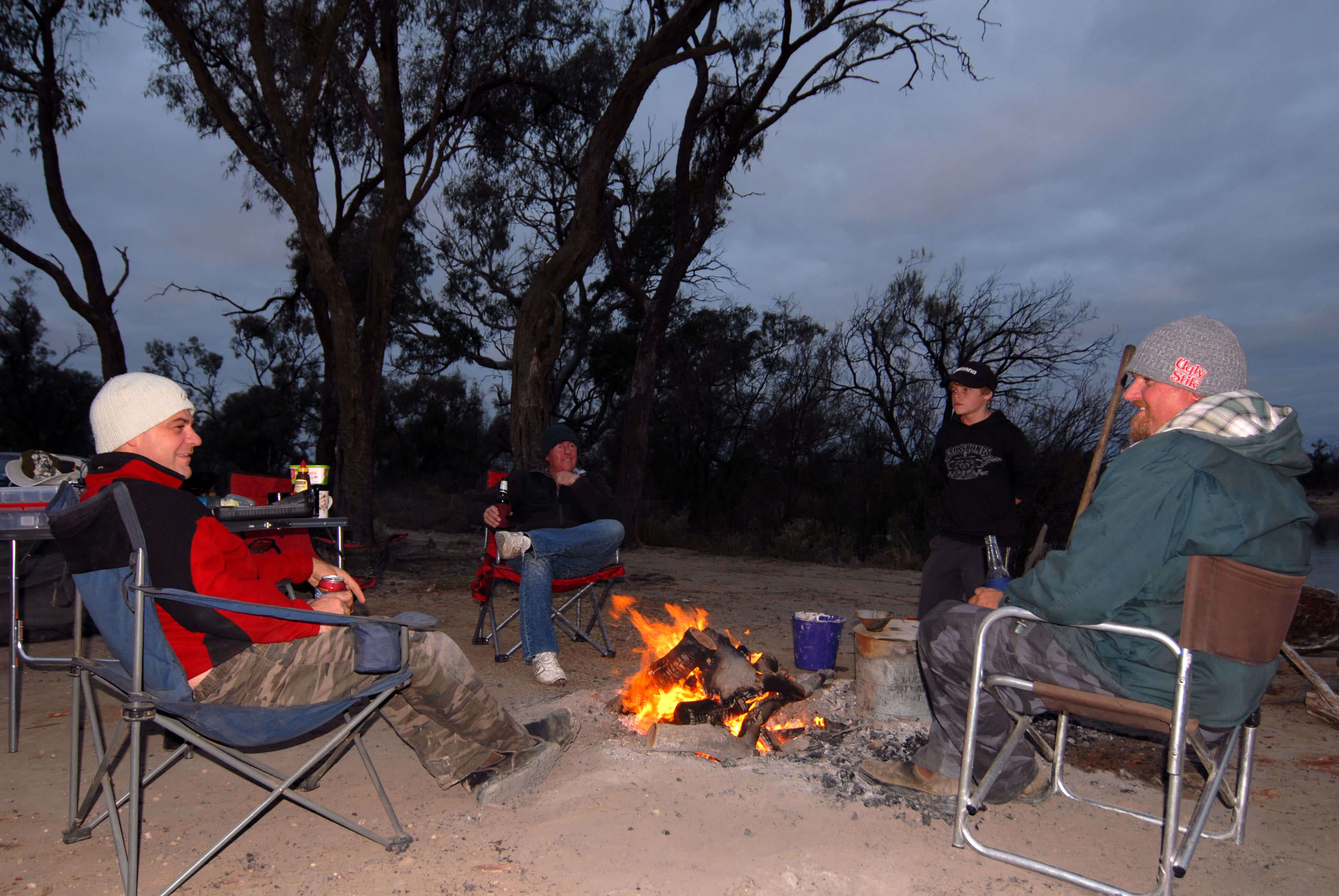
A tradition among anglers who camp along riverbanks is to gather around and spin a good yarn. And when it comes to tall stories, few tales rival those associated with Australia’s biggest freshwater fish, the mighty Murray cod. Cod anglers are passionate about their fish and hold little regard for imports like trout, which many call “speckled cod lollies”.
A gauge to a fish’s popularity and standing are the stories and jokes. When it comes to Murray cod, the storybook is a tome. No one belittles Murray cod, but anglers have been known to stretch the truth and cod tales and jokes are definitive bush humour: a mixture of folklore with a modicum of fact and fantasy.
There are tales aplenty of cod so big that they have gravel rash on their bellies and sunburned backs; of fish so big that the river level dropped when they were landed, and their scales were such that just three of them made a new roof for the backyard dunny.
There is a story about the angler who had to follow his fish all the way to the junction of the Ovens and Murray Rivers to find a place wide enough to turn it around. It took two frames to get that cod in a photograph, and although the angler forgot the actual weight of the fish, he recalled that the negative (pre-digital) weighed two kilograms.
Tales are told that when it comes to a hot bite, things are not like they used to be: “Well,” said Old Jack, “if it’s fishin’ you want, the Murrumbidgee’s the place for big-‘uns.”
“Do they bite well there?” a mate asked.
“Bite well! Listen, I’ve seen the time when you had to hide behind a tree to bait your flaming hook!”
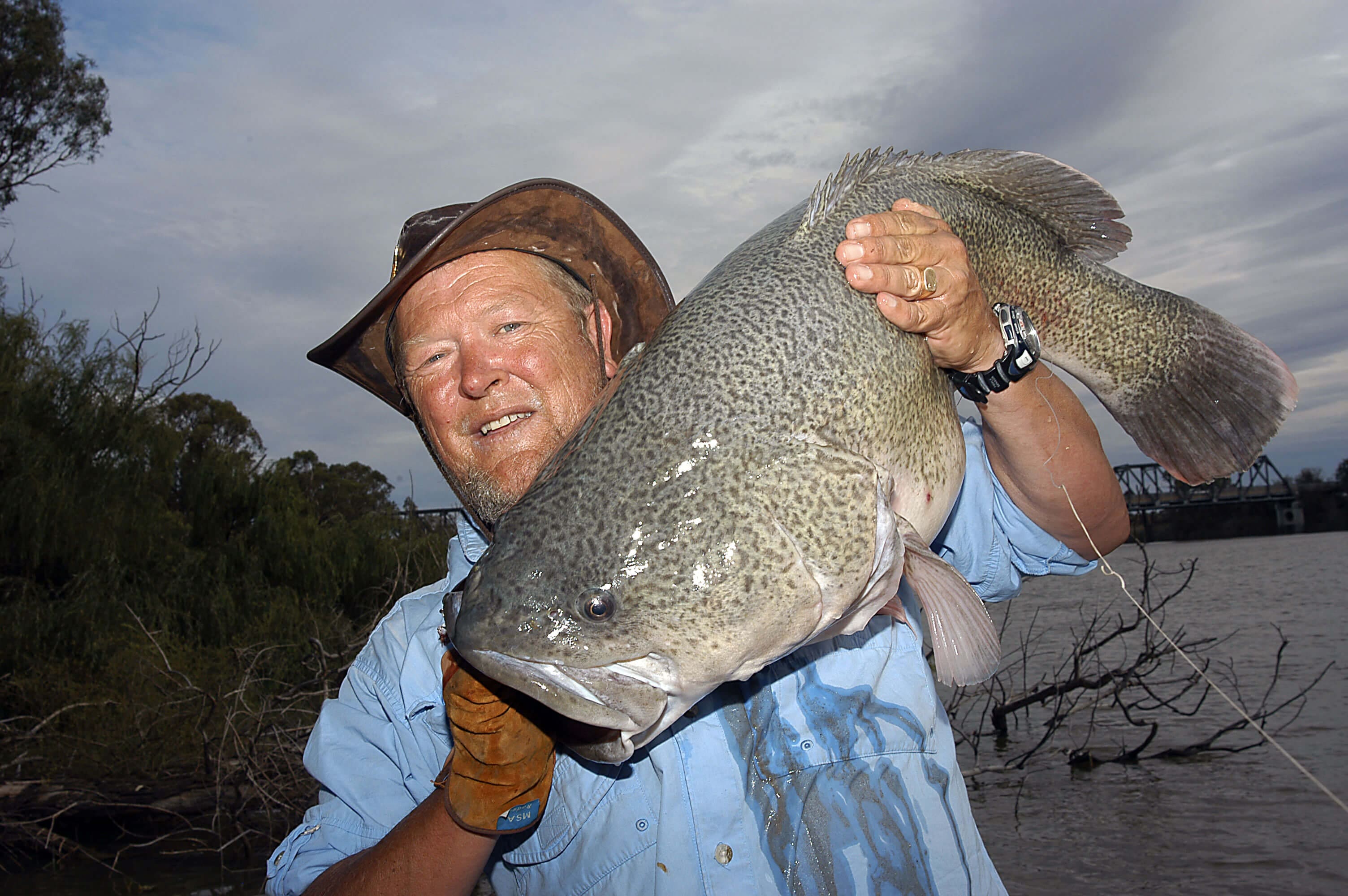
Cod have shown a catholic bent when it comes to food. This fish has a well-documented liking for golf balls at Lake Mulwala. The reasoning being that cockatoos push dead eggs out from their nests, which the cod eat. A golf ball landing on the water from a mistimed shot is mistaken for a bird egg. At some stage, the golf balls are disgorged. It’s a bit different with freshwater mussels. These are swallowed, the shell opens when the mussel dies and the cod digestive juices take the meat and the shell is disgorged.
You can catch cod on boiled eggs and small tomatoes. If you decide to use eggs, make sure you have an elastic band, or better still some Baitmate, to hold the egg on the hook. Another bait that works if you happen to have access to an abattoir is the spinal cord out of cattle. When the cord is cut into 100 mm lengths and placed on a hook, it resembles a bardi in the water.
If you think the above baits are bizarre, spare a thought for the Murrumbidgee Whalers. Cod angler Rod Harrison described the group as a sub-culture of water-bound swagmen who lived on double-ended clinkers boats and survived by catching fish, which they bartered for other goods. They were both resourceful and innovative in creating alternative baits, especially for cod. Using cord lines, they would put a colourful parrot on the hook and troll it behind their boat.
A classic cod yarn is how Boundary Bend on the Murray River came to be. Seems a Scotsman, an ex Highland hammer thrower known as Mac, lost his temper one day and in a pique, took out his frustration by swinging a bullock chain around his head. When he let the chain fly, it went straight across the Murray and hooked a wild boar. As he pulled the pig across the river, a huge cod took it. Strong as he was, he could not pull that fish out of the river, so he hitched up his bullock team. In towing the cod out, he pulled the river out of shape, and that is how Boundary Bend got its name.
As well as big cod, there are smart cod. I once heard of a boy who was fishing off the riverbank fishing for cod. He was alone, but there were two men out on a boat drinking a little bit in the middle of the cove. The boy was getting tired of fishing, so he started to reel his line in. It felt like it was hung on something on the bottom. One of the men saw him having trouble and yelled to him that he would swim down and unhook it. The man jumped in and stayed down awhile. When he surfaced he hollered to the boy that he had the biggest fish he’d ever seen on the other end of his line, but there was a problem: there was an old car down there and the fish was in it. The boy asked the man: “Can you pull the fish out?” The man said he had tried but every time he got near the car, the fish rolled up the window.
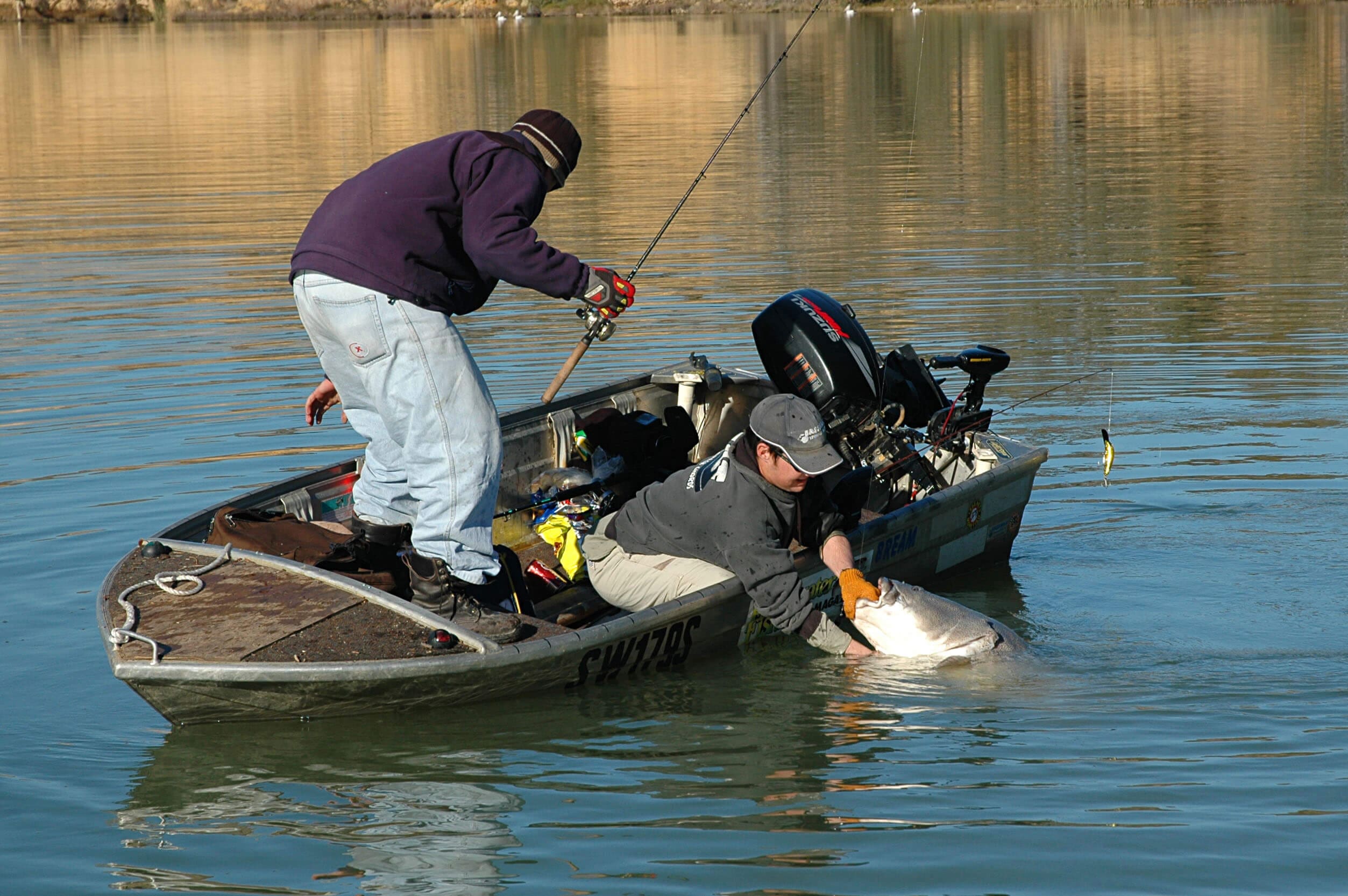
Another tale tells of a man on a shooting, fishing, boozing trip on the Murray. He was fishing for cod but they were proving elusive. After three days with no result, he was fiddling around with an antique muzzle-loader when a flock of about 300 wild ducks came into view. Quickly taking aim, he fired. The charge was heavy, the recoil sending him backwards, and he fell on a rabbit and broke its neck. In his excitement, he forgot to remove the ramrod from the gun barrel and as well as the four ducks he had shot, he saw one coming down speared by the ramrod. This duck fell into the river and speared a 20kg Murray cod. As he waded into the water to retrieve his catch, he tripped over an illegal craypot, which held 23 lovely Murray crays.
There are some mean stories, like young Peter who boosted his pocket money by catching cod and selling them to the people in the small country town where he lived. One Sunday he had sold all his fish except for one. The only house he hadn’t tried was way up the top of a cliff. He toiled his way up the steep path but when he finally knocked, the door was flung open and a man shouted rudely: “No fish!” Peter made his way back down the cliff path but just as he reached the bottom, he heard a voice calling to him from the house he’d just left. There was a woman at the door, waving to him. Wearily he dragged himself all the way back up the steep path. When he reached the house, the woman snapped: “And we won’t want any fish next Sunday either.”
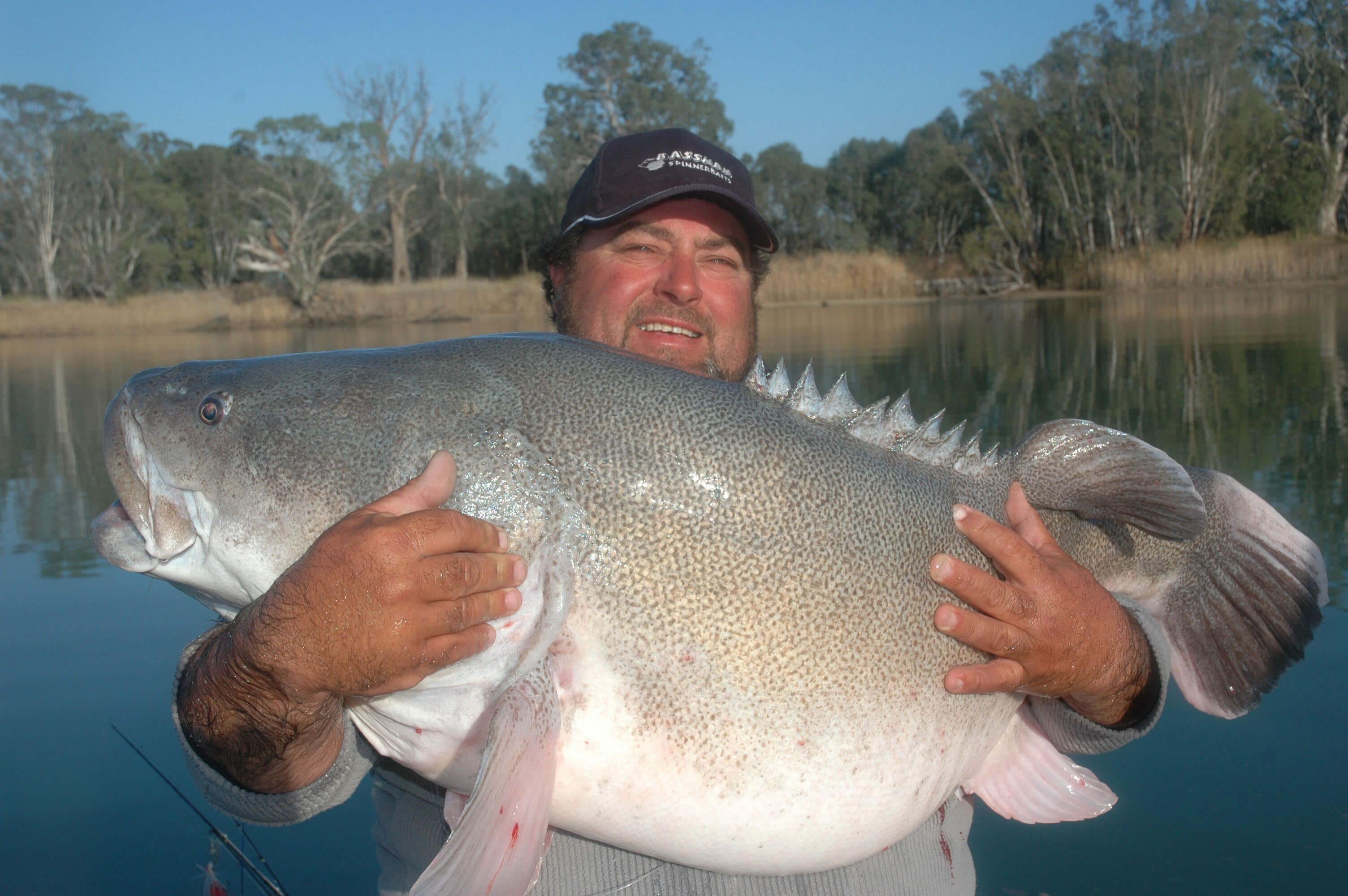
Tree branches are an ongoing problem, as Sid found when fishing the lower Murrumbidgee River. He was sitting on the banks of the river fishing while nearby his horse, with cart on behind, grazed in the sun. Suddenly, a huge cod took the bait and darted off upstream. Realising the monster was too big to tackle with his own old muscles, the old man thought quickly and tied the line to the back of the cart. However, the cod was so big that it began to drag the horse and cart backwards towards the river. The battle continued, with the horse straining and digging its heels in, Sid screaming at it to “gee up” and the fish gradually pulling them closer and closer to the river. All looked lost as the cart teetered on the edge of the bank when suddenly the old horse stretched out and grabbed an overhanging branch in its teeth. Then the line broke … or so the story goes.
STEVE COOPER won two Walkley Awards for investigative journalism but his great love is fishing and he is renowned as one of Australia’s foremost writers and broadcasters on the subject.


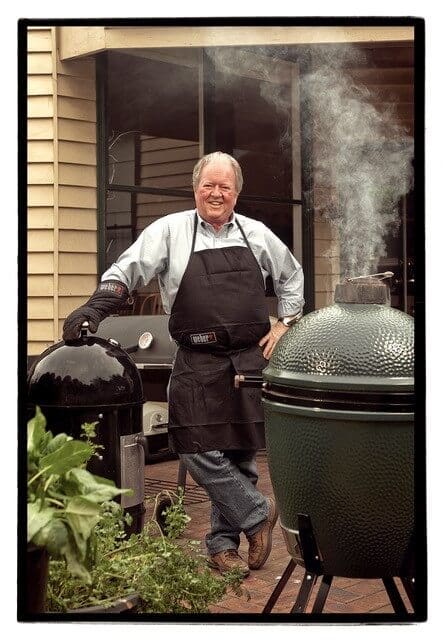
Discussion about this post